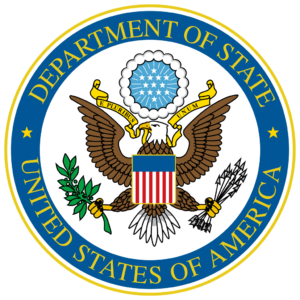 The scenario or rhetoric involving elect President Donald Trump and his alleged initiatives in Gaza raises significant ethical, legal, and humanitarian concerns. While it is important to approach such claims with a critical eye and verify their accuracy, the hypothetical actions declared or outlined—such as forcibly displacing Gazans, selling land, and pressuring neighboring countries to accept refugees—would indeed violate international law, human rights principles, and the norms of global diplomacy.
The scenario or rhetoric involving elect President Donald Trump and his alleged initiatives in Gaza raises significant ethical, legal, and humanitarian concerns. While it is important to approach such claims with a critical eye and verify their accuracy, the hypothetical actions declared or outlined—such as forcibly displacing Gazans, selling land, and pressuring neighboring countries to accept refugees—would indeed violate international law, human rights principles, and the norms of global diplomacy.
Key Points to Consider:
1. International Law and Human Rights
– Forcible displacement of populations is prohibited under international law, including the Fourth Geneva Convention and the Rome Statute of the International Criminal Court. Such actions could could be construed as ethnic cleansing and constitute war crimes or crimes against humanity.
– The right to self-determination and the protection of civilians in conflict zones are fundamental principles upheld by the United Nations and international humanitarian law.
2. Historical Context
– The Israeli-Palestinian conflict is deeply rooted in history, with both sides experiencing significant trauma and loss. Any proposed solution must respect the rights and dignity of all parties involved.
– The suffering of Gazans, including high civilian casualty rates and widespread destruction due to indiscriminate shelling and bombing, has been widely documented and condemned by international community and organizations.
3. U.S. Foreign Policy and Public Opinion
– U.S. foreign policy in the Middle East has often been controversial, with critics accusing successive administrations of bias or disregard for Palestinian rights. However, outright support for actions like ethnic cleansing or genocide would likely face strong opposition from the American public, human rights organizations, and the international community.
– Inspite of Trump’s declared sidedness and belicosity, public opinion in the U.S. is diverse, with many Americans advocating for a balanced approach that respects the rights of both Israelis and Palestinians.
4. Arab Leadership and Unity
– Arab leaders have historically emphasized the importance of Palestinian rights and statehood. Any initiative perceived as undermining these principles would likely face strong resistance from Arab states and their populations.
– Unity among Arab nations, as well as collaboration with the international community, would be essential in opposing any unjust or illegal actions. President Trump has declared war indiscriminately including against US allies in the Middle East.
5. Trump’s Rhetoric and Tactics
– During his presidencial campaign and before, Donald Trump was known for his unconventional and often controversial rhetoric. While some of his statements may have been intended as negotiation tactics, they often sparked outrage and confusion.
– It is crucial to distinguish between rhetoric and actual policy. However, even hypothetical discussions of such actions can have damaging consequences, including emboldening extremists and undermining historic peace efforts, keeping track on ending the occupation, the ongoing cease fire negociations and the rare chance of liberating prisoners of both sides and finally creating the Palestinian State as per the 1967 resolution and Oslo accord.
Conclusion:
The hypothetical actions forworded by president Trump would be indefensible from a moral, legal, and humanitarian perspective. They would likely face universal condemnation and could exacerbate tensions in an already volatile region. It is essential for all parties to prioritize dialogue, respect for human rights, and adherence to international law in seeking a just and lasting resolution to the Arab-Israeli conflict. Arab leaders, the international community, and civil society must remain vigilant and united in opposing any actions that threaten peace, justice, and the rights of vulnerable populations of Gaza and Palestine.




